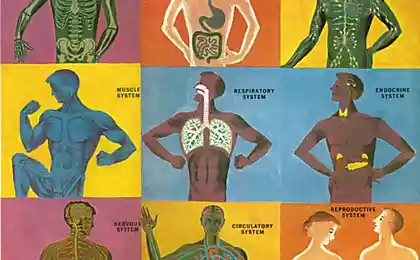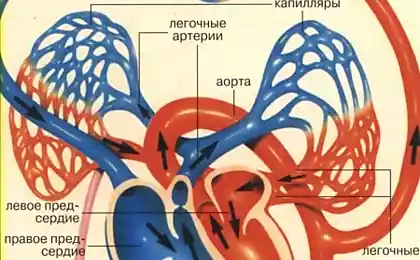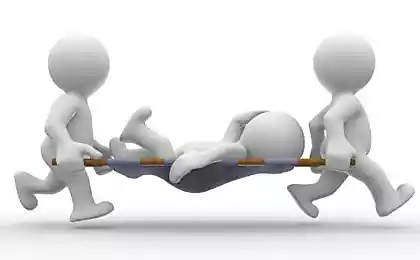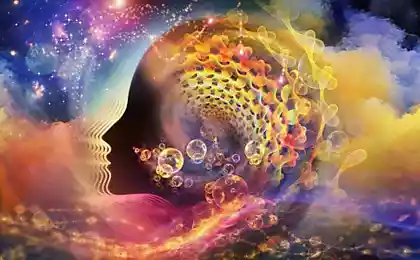184
Why You Should Drink a Lot of Water for Heart Health
The importance of the cardiovascular system cannot be overestimated, because it nourishes all the cells of the body with the necessary oxygen, removing decay products and simply harmful substances. Therefore, each parameter in this coherent system plays a crucial role.
“By the viscosity of blood in the human body, you can not only determine its health, but also describe the whole life,” they say. Right? hyperviscosity It affects health and what dangers can it pose?

DepositPhotos
What makes blood thicker Cardiovascular system reliability has not many analogues. All vessels can be called a kind of wire through which blood runs. And these vessels are difficult to damage, except that they will be cut, squeezed, torn or corroded by the special properties of the blood itself.
Although blood has many functions, the main one is the delivery of oxygen. The second most important function is to nourish the cells. Because every organ needs food. Even the heart.

DepositPhotos But when broken acid-baseerythrocytes of blood begin to stick together, blood thickens and there are interruptions in the work of the entire system. When red blood cells stick to each other, a blood clot forms. It is from such formations that one in four people on the planet die.
The heart has such a margin of safety that it can work for more than 150 years. But this is only possible when the heart cells receive all the necessary nutrients. If there is nothing important in the blood, then the heart cells will suffer, working more chaoticly. This phenomenon in medicine is called atrial fibrillation.

DepositPhotos
As a result, the mode of work of the heart is disturbed. If under normal conditions it rests every half a second, then with arrhythmia, rest is reduced, which means that the heart wears out faster. And if you add to this a lack of nutrients, oxygen deficiency, stress, improper food, excess acid in drinks, then the life of the heart is shortened.

DepositPhotos
Substances that improve the state of the cardiovascular system
From the deficiency of the necessary substances, increased blood viscosity occurs, blood clots appear. Cholesterol in such a person may be normal, but hypertension is detected.

Another cause of hypertension is called a psychological factor. When a person is nervous, he releases a hormone of fear - adrenaline. In nature, thanks to this hormone, animals are saved from death - their blood does not flow out, but is delayed in vital organs. Having fought off or fled from danger, and simultaneously emptying, the animal consumes adrenaline, and its blood returns to normal.
The human situation is different. nervous and received epinephrinewhich must be spent immediately, a person does not act. Because of this, there is an adrenaline shock, which often ends in a heart attack.
Therefore, with the release of adrenaline, you need to either sweat, or go to the toilet, or drink water. This is especially true of water, which plays an important role for the human body. In a stressful situation, doctors recommend drinking, but not cold, but hot water. They say that in this way a person will replenish the supply of moisture, and at the same time sweat.

DepositPhotos
When blood thickens, the cardiovascular system suffers, but problems are observed in other body systems - memory suffers, vision deteriorates, fatigue increases, irritability and insomnia appear. Therefore viscous A danger that should be noticed as soon as possible and treated immediately.
We have already told you how to check the functioning of the circulatory system, and also gave interesting facts about the functions of blood in the human body. Share this information with your friends and they will be grateful.
“By the viscosity of blood in the human body, you can not only determine its health, but also describe the whole life,” they say. Right? hyperviscosity It affects health and what dangers can it pose?

DepositPhotos
What makes blood thicker Cardiovascular system reliability has not many analogues. All vessels can be called a kind of wire through which blood runs. And these vessels are difficult to damage, except that they will be cut, squeezed, torn or corroded by the special properties of the blood itself.
Although blood has many functions, the main one is the delivery of oxygen. The second most important function is to nourish the cells. Because every organ needs food. Even the heart.

DepositPhotos But when broken acid-baseerythrocytes of blood begin to stick together, blood thickens and there are interruptions in the work of the entire system. When red blood cells stick to each other, a blood clot forms. It is from such formations that one in four people on the planet die.
The heart has such a margin of safety that it can work for more than 150 years. But this is only possible when the heart cells receive all the necessary nutrients. If there is nothing important in the blood, then the heart cells will suffer, working more chaoticly. This phenomenon in medicine is called atrial fibrillation.

DepositPhotos
As a result, the mode of work of the heart is disturbed. If under normal conditions it rests every half a second, then with arrhythmia, rest is reduced, which means that the heart wears out faster. And if you add to this a lack of nutrients, oxygen deficiency, stress, improper food, excess acid in drinks, then the life of the heart is shortened.

DepositPhotos
Substances that improve the state of the cardiovascular system
- sodium
Sodium deficiency leads to increased acidity. - calcium
Without calcium, teeth, nails, hair suffer. There are also problems with the musculoskeletal system, baldness. - Magnesium
With a lack of magnesium, the vessels lose elasticity and are easily damaged during loads. - potassium
Heart muscle with a deficiency of potassium begins to work intermittently. There are disturbances in the work of the heart, which over time lead to irreversible consequences.
From the deficiency of the necessary substances, increased blood viscosity occurs, blood clots appear. Cholesterol in such a person may be normal, but hypertension is detected.

Another cause of hypertension is called a psychological factor. When a person is nervous, he releases a hormone of fear - adrenaline. In nature, thanks to this hormone, animals are saved from death - their blood does not flow out, but is delayed in vital organs. Having fought off or fled from danger, and simultaneously emptying, the animal consumes adrenaline, and its blood returns to normal.
The human situation is different. nervous and received epinephrinewhich must be spent immediately, a person does not act. Because of this, there is an adrenaline shock, which often ends in a heart attack.
Therefore, with the release of adrenaline, you need to either sweat, or go to the toilet, or drink water. This is especially true of water, which plays an important role for the human body. In a stressful situation, doctors recommend drinking, but not cold, but hot water. They say that in this way a person will replenish the supply of moisture, and at the same time sweat.

DepositPhotos
When blood thickens, the cardiovascular system suffers, but problems are observed in other body systems - memory suffers, vision deteriorates, fatigue increases, irritability and insomnia appear. Therefore viscous A danger that should be noticed as soon as possible and treated immediately.
We have already told you how to check the functioning of the circulatory system, and also gave interesting facts about the functions of blood in the human body. Share this information with your friends and they will be grateful.
























